Related Research Articles
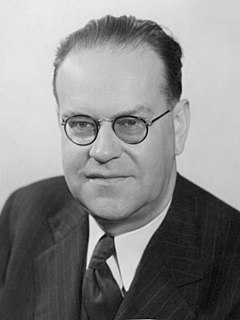
Tage Fritjof Erlander was a Swedish politician who served as Prime Minister of Sweden from 1946 to 1969. He was the leader of the Swedish Social Democratic Party and led the government for an uninterrupted tenure of 23 years, one of the longest in any democracy. This led to Erlander being known as "Sweden's longest Prime Minister" referring to both his physical stature – 192 cm, or 6 feet and 3.5 inches – and tenure.
Child benefit or children's allowance is a social security payment which is distributed to the parents or guardians of children, teenagers and in some cases, young adults. A number of different countries operate different versions of the program. In the majority of countries, child benefit is means-tested and the amount of child benefit paid is usually dependent on the number of children one has.

Dals Långed is a locality situated in Bengtsfors Municipality, Västra Götaland County, Sweden. It had 1,520 inhabitants in 2010.

Adolphe de Leuven was a French theatre director and a librettist. Also known as Grenvallet, and Count Adolph Ribbing.
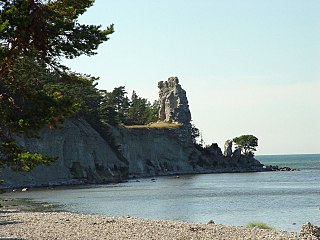
Lickershamn is a small settlement and fishing village situated in Stenkyrka on the Swedish island of Gotland.
Svensk uppslagsbok is a Swedish encyclopedia published between 1929 and 1955, in two editions.
Parish granaries were communal granaries established in Sweden and Finland during the 18th and 19th century. They were built for storing grains in case of poor harvest or crop failure. Farmers could borrow seeds at low rates of interest and the possible profit was used for the poor.
Saint Ingrid of Skänninge was a Swedish abbess venerated as a saint in the Roman Catholic Church. She founded Skänninge Abbey, a nunnery belonging to the Dominicans, in 1272. Her feast day is on September 2.
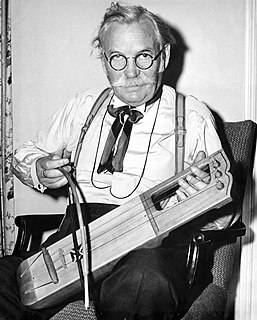
Otto Emanuel Andersson was a Finnish musicologist.
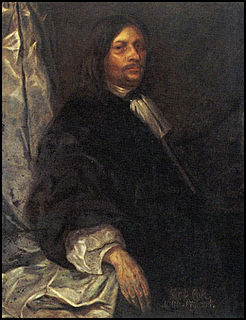
Lorentz Creutz was a Swedish friherre, government administrator, county governor (landshövding) of Kopparberg County (1655–62), member of the Privy Council and supreme commander of the Swedish navy for a few months in 1676.
Laurids Nilsen (Norwegian), Lars Nilsson (Swedish) or Laurentius Nicolai Norvegus (Latin), known in Sweden as Kloster-Lasse or Convent-Lawrence, was a Norwegian Jesuit, active in service of the Counter-Reformation in Sweden during the reign of King John III of Sweden from 1576 until 1588. During that time, he headed the Roman Catholic Collegium Regium Stockholmense.
Carl Hochschild (1785–1857), was a Swedish baron and diplomat. He was the son of Rutger Fredrik Hochschild and father of Carl Fredrik Hochschild. After service in the Cabinet for Foreign Letters of Exchange and at different missions, he was minister in Copenhagen 1821–1836, chamberlain in 1826, minister in The Hague 1836–1841, Vienna 1845–1850, envoy in Berlin 1850–1854 and in London 1854–1857.

Events from the year 1861 in Sweden
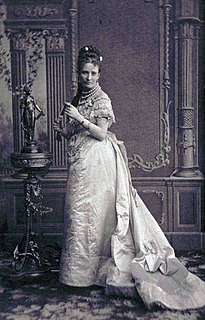
Events from the year 1874 in Sweden

Events from the year 1735 in Sweden

Lojsta is a populated area, a socken, on the Swedish island of Gotland. It comprises the same area as the administrative Lojsta District, established on 1 January 2016.

A backstuga is a Swedish language judicial term, previously used in Finland and Sweden, for a kind of rural cottages.
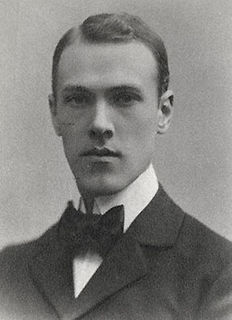
Nils Fredrik Gösta Hillberg, was a Swedish actor. Hillberg first worked at Vasateatern, Svenska teater and Sydsvenska skådebanan, he also worked at Dramaten. He was the son of actor Emil Hillberg, and in 1908 he married actress Berta Schantz. Besides doing many theater works he also acted in more than fifteen films between 1920 and 1944 amongst them Ombytta roller (1920) and Flickan från Paradiset (1924).
BerndtDavid Assarsson was a Swedish Catholic priest, monsignor, historical author and psalmist who resided in Helsingborg and Stockholm. He made efforts to develop Roman Catholicism in Sweden. He was born in Lund and died in Helsingborg.
Carl Johan Ingman was a Swedish diplomatic secretary and spy.
References
- ↑ Carlquist, Gunnar, ed. (1939). Svensk uppslagsbok . Malmö: Svensk Uppslagsbok AB. p. 736.
| This Sweden-related article is a stub. You can help Wikipedia by expanding it. |